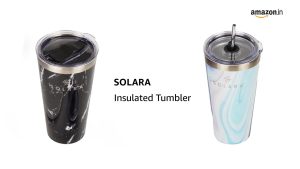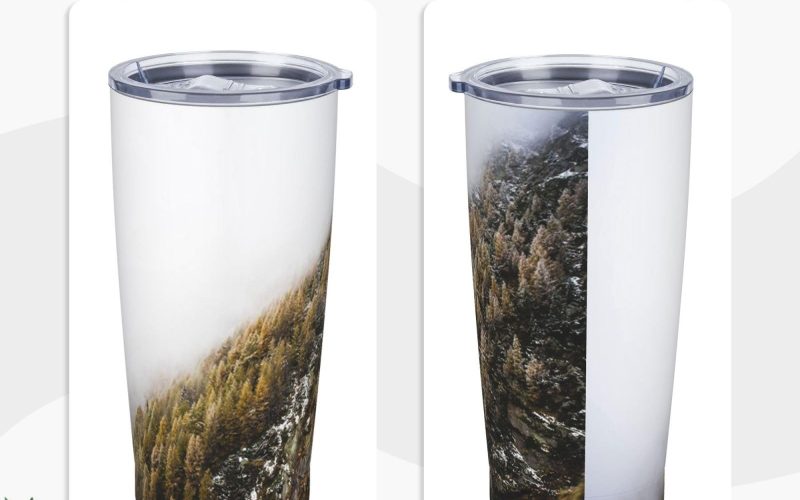Eco-Friendly Drinkware: The Rise of Insulated Tumblers
The global push towards sustainable living has sparked a revolution in various sectors, including drinkware. Among the various eco-friendly options, insulated tumblers have emerged as a popular choice. These versatile containers offer numerous benefits, from reducing plastic waste to maintaining beverage temperatures. This article delves into the rise of insulated tumblers, examining their environmental impact, popularity, and the technological advancements that make them a superior choice for consumers.

The Environmental Impact of Traditional Drinkware
Plastic Pollution
Plastic pollution is a critical environmental issue, with millions of tons of plastic waste entering oceans each year. Traditional plastic bottles and single-use cups contribute significantly to this problem. These items take hundreds of years to decompose, causing long-term harm to marine life and ecosystems.
Carbon Footprint
The production and disposal of single-use plastic bottles and cups generate significant carbon emissions. From manufacturing to transportation and eventual breakdown, the lifecycle of these items is resource-intensive and polluting.
Insulated Tumblers: A Sustainable Alternative
Reusability
Insulated tumblers are designed for repeated use, significantly reducing the need for single-use plastics. This reusability translates to less waste and a smaller environmental footprint.
Durability
Made from robust materials like stainless steel and BPA-free plastics, insulated tumblers are built to last. Their durability means they can withstand daily wear and tear, making them a long-term investment for eco-conscious consumers.
Temperature Retention
One of the standout features of insulated tumblers is their ability to maintain beverage temperatures for extended periods. Whether it’s keeping coffee hot or water cold, these tumblers provide an added convenience that traditional plastic bottles and cups cannot match.
Popularity and Market Trends
Consumer Preferences
There has been a noticeable shift in consumer preferences towards sustainable products. This trend is evident in the increasing sales of insulated tumblers, which are often marketed as eco-friendly alternatives to traditional drinkware.
Corporate Responsibility
Many companies are adopting insulated tumblers as part of their sustainability initiatives. Offering branded tumblers to employees and customers not only promotes the company’s commitment to the environment but also serves as a marketing tool.
Innovations and Design
The market for insulated tumblers is growing, with manufacturers continuously innovating to improve design and functionality. Features such as spill-proof lids, ergonomic shapes, and various sizes cater to a broad range of consumer needs.
Technological Advancements in Insulated Tumblers
Vacuum Insulation
Vacuum insulation technology is at the core of what makes insulated tumblers effective. By creating a vacuum between the inner and outer layers, heat transfer is minimized, keeping beverages at their desired temperature for longer periods.
Material Improvements
Advancements in materials, such as the use of food-grade stainless steel and BPA-free plastics, ensure that insulated tumblers are safe for use and environmentally friendly. These materials are also resistant to corrosion and do not retain flavors, making them ideal for various beverages.
Customization and Aesthetics
Manufacturers are increasingly focusing on the aesthetic appeal of insulated tumblers. Customization options, including color, design, and branding, make these tumblers a popular choice for personal use and corporate gifts.
Comparative Analysis
Environmental Impact Comparison
| Aspect | Insulated Tumblers | Traditional Drinkware |
| Material | Stainless steel, BPA-free plastic | Single-use plastic, paper |
| Lifespan | Several years | Single use |
| Waste Generation | Minimal | High |
| Decomposition Time | 50+ years (reusable) | 500+ years (plastic) |
| Carbon Footprint | Lower (over lifespan) | High (production and disposal) |
Consumer Benefit Comparison
| Feature | Insulated Tumblers | Traditional Drinkware |
| Temperature Retention | High (hours) | Low (minutes) |
| Durability | High | Low |
| Reusability | High | None |
| Cost Over Time | Lower (long-term use) | Higher (frequent purchases) |
| Convenience | High | Moderate |
Educational Campaigns and Consumer Awareness
Educational campaigns have played a crucial role in raising awareness about the environmental impact of single-use plastics. Schools, universities, and environmental organizations are increasingly promoting the use of insulated tumblers as part of their sustainability education efforts. By highlighting the benefits of reusable drinkware, these campaigns encourage individuals to make more environmentally conscious choices in their daily lives.
Policy Support and Incentives
Governments and municipalities are also recognizing the importance of reducing single-use plastics and are implementing policies to support this shift. Some cities have introduced bans or taxes on single-use plastic cups and bottles, creating a market demand for alternatives like insulated tumblers. Additionally, incentives such as discounts for bringing your own tumbler to coffee shops further promote their use, making it financially beneficial for consumers to adopt these sustainable habits.
Conclusion
The rise of insulated tumblers is a testament to the growing awareness and commitment to sustainability among consumers and businesses alike. These tumblers offer a practical and eco-friendly solution to the problems posed by traditional drinkware, such as plastic pollution and high carbon footprints. With continuous innovations in design and functionality, insulated tumblers are set to become a staple in households and workplaces, contributing to a more sustainable future.












